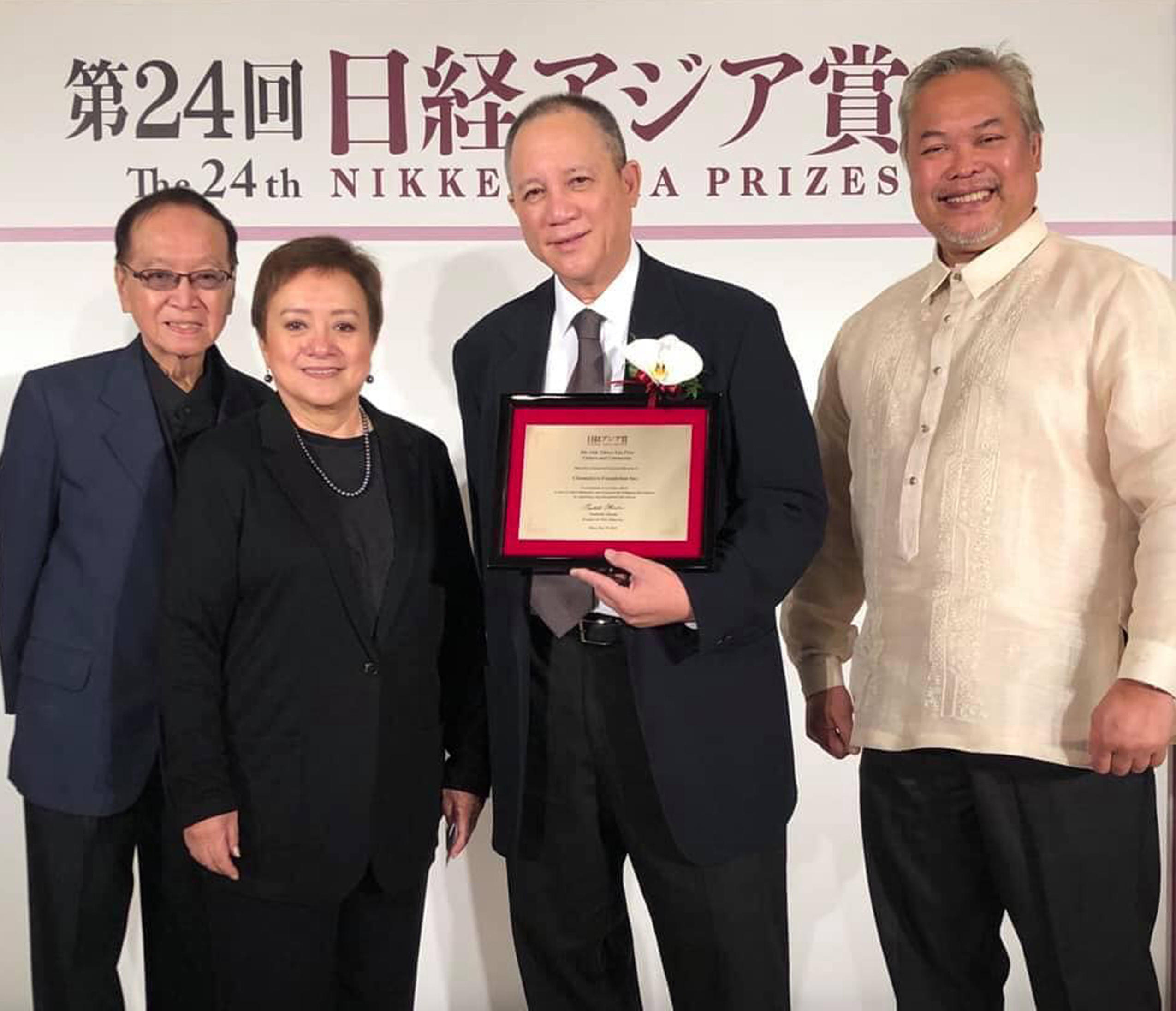Cinemalaya Receives Nikkei Asia Prize
Cinemalaya Foundation Inc. received the prestigious Nikkei Asia Prize for Culture and Community for its valuable efforts “to shed a new light on the country’s film industry, which had been viewed as dead following a huge decline in production.”

Based on the Nikkei citation, “the name Cinemalaya is a portmanteau of Filipino words reflecting the founders’ belief that cinema, ‘cine,’ could enliven consciousness, ‘malay,’ by telling stories in a free and independent manner, ‘malaya.’”
Since 2004, the Cinemalaya Foundation has been supporting young filmmakers and promoting the best cinematic works to the world through the annual Cinemalaya Philippine Independent Film Festival, ushering the renaissance of the Philippine movie industry.
Before its foundation, the Philippine cinema industry faced despondency. By 2004, there were less and less movies being produced. Most of those produced and screened were uninspired romantic comedies or action films that failed to bring in audiences to the theaters.
Looking at this grim picture prompted actress-director Laurice Guillen, who was then the chairperson of the Film Development Council of the Philippines, and Nestor Jardin, former president of the CCP, to find a way to spark a cinematic resurgence and foster young filmmakers who could become the important movers of the film industry.
They thought about launching a film festival that was different from the existing festival for commercial films. They partnered with businessman Antonio Cojuangco who, at the time, was looking for new content for his Dream Satellite TV but has been frustrated with the low quality of local films.
Cojuangco welcomed the idea that Guillen and Jardin presented to him. They proposed to establish a foundation that would help develop and support the Filipino independent filmmakers whose works would boldly articulate and freely interpret the Filipino experience with fresh insight and artistic integrity.
Its core project would be a competition and film festival, which would be instrumental to discover, encourage, support, train and recognize gifted Filipino independent filmmakers, while promoting Filipino independent films locally and internationally.
Cojuangco accepted the proposal, with the condition that the festival would only focus on young people who have produced only one or two films.
In 2005, the Cinemalaya Philippine Independent Film Festival made its debut through the partnership between the Cinemalaya Foundation and the Cultural Center of the Philippines.
With an initial budget of Php11 million pesos donated by Cojuangco, the foundation launched the film competition, granting Php500,000 financial support each for the 10 film projects they have selected among the applications submitted.
Since then, Cinemalaya has become the country’s biggest indie film festival, drawing over 50,000 people, mostly young film enthusiasts, eager to catch the latest indie films. This year, the film festival celebrates its 15th year on August 2 to 11, 2019, at the CCP.
Through the years, it has supported and promoted the production of 145 full-length feature independent films and 138 short-feature films. Many of these films have won awards in local and international competitions and festivals. It has showcased over 1,000 works by independent filmmakers including full-length feature films, shorts, documentaries, Filipino film classics, and art films, as well as award-winning international films.
The festival has expanded beyond the confines of the CCP. With partnership with local malls, the festival has reached more audiences and inspired the rise of different film festivals all over the country.
On its 24th edition, the Nikkei Asia Prizes recognized the foundation’s efforts and outstanding achievements.
“I was overjoyed to hear that the Nikkei Asia Prize was giving the Community and Culture Award to Cinemalaya Foundation. It is an honor, and I consider it an affirmation and reward for the vision and work of all the Cinemalaya stakeholders these past 15 years,” said Guillen.
Every year, Nikkei Asia Prizes are given to individuals and groups in Asia that contribute to the region’s sustainable development and help create a better future for Asia.
Aside from Cinemalaya, Indonesian businessman Nadiem Makarim, founder and chief executive of ride-hailing service Go-Jek and Taiwanese professor I Chiu Liao from the National Taiwan Ocean University who pioneered prawn farming also received the prestigious award.
In his acceptance speech during the awarding rites held in Japan last May 29, Cojuangco believed that the award “affirms the creative power that can be unleashed by the collaboration between private business, government agencies and cultural centers.”
The film festival is the result of good partnerships among public and private organizations, including Canon. During the awarding, Cojuangco has met Canon CEO Fujio Mitarai who learned that his company in the Philippines has been supporting the festival for the past years.
To understand the significance of Cinemalaya and its contribution to Philippine national cinema, Cojuangco enthused that one needs to situate it in the rise and decline of the film industry in the country.
“This recognition also helps to bring awareness of our movies to global audiences and since Cinemalaya includes the exhibition of films from other countries, it is our hope that this builds bridges of empathy across cultures. In this age of fake news and the weaponising of social media, we offer our Festival as an alternative space for truth telling,” Cojuangco concluded.

